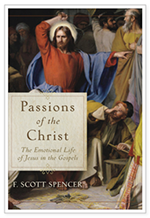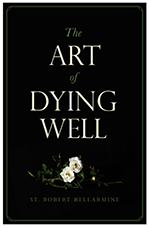THE CATHOLIC REVIEW: Books for Our Lenten Journey
by Deacon Rick Bauer
We observe Lent in prayer, fasting, and giving alms. It can also be a season — a Passover of sorts — once in every year, of rest and reflection. For many this year, it can be a time of emergence from the disease, death, and sense of general despair all around us. While that may seem to tie a lot on the shoulders of Lent to carry, faith and directed time spent on the spiritual aspects of life will always yield its fruit if we do not faint. The books reviewed here are timely for Lent, they are available (all recently released), and they speak to various maladies of the spirit, refreshing for the soul, and each offers pragmatic ways to prepare for an Easter awakening of our faith. May God bless us with his rest during this season.
The liturgy for Lent begins with the temptation of Jesus in the desert, and his encounter with the Deceiver. “All this I will give you” is his promise to Jesus, one of the more successful gambits in the playbook of temptation and sin. More sophisticated religious practice shows a faith that includes only positive platitudes, puts on a perky smile in the midst of human depravity or disaster, and generally imagines a tempter who would only deceives more simplistic believers. After all, this is the 21st century.
Such a moral climate is perfect for this Deceiver to operate. In “The Deceiver: Our Daily Struggle with Satan,” Father Livio Fanzaga observes that “in a cultural climate that excludes the supernatural, the devil acts without being noticed. In a context of life in which God and his moral law are denied, Satan moves like a fish in water. Souls without light and deprived of the weapons of the holy battle are doomed.”
St. Paul writes the faithful at Corinth about his own self-testing and care “so that we would not be outwitted by Satan; for we are not ignorant of his designs” (2 Corinthians 2:11). Fanzaga gives us a playbook of the various temptations that are used against us in life, that we are not ignorant, either. After a thoroughly scripture-based introduction of Satan (Prince of Darkness, Adversary of God, Enemy of Man, Prince of this World, and The Tempter), the next section of The Deceiver addresses topics including “The Beginning of Temptation,” “The Dynamics of Temptation,” and “The Outcome of Temptation.” We understand the stakes of the conflict, but we do not cower with fear. There is One who has faced these battles and won, and by his grace, forgiveness, and merit we can claim victory over this “deceiver of the brethren” (Revelation 12:9), who has been defeated by Christ.
To fully detail the aspect, character, and temptations wielded by the devil is to risk the twin extremes of either benign condescension (noted above) or an over-morbid-obsession with the demonic. Father Fanzaga keeps us from either extreme. “The main point of Christian life can seem to be an anxious vigilance in battle against the enemy who assails us, rather than the contemplation of a Love that saves us by happily and humbly calling us to respond to it,” he states.
This is a book well suited for a Lenten reflection over our weaknesses and failings, how they may have entered into our lives, and the keys (sacramental participation, reformed behavior, and renewed mindset) that can bring grace in our time of need. “The Deceiver” will equip us with the weapons we need to defeat Satan while opening our eyes to the miracles of God’s healing love as we prepare for eternity.
Ours is an emotional time: outrage gets headlines, vitriol and accusation dominate the social media, entire television programs are structured to pit one person (or group) against another — the angrier the better. So, what does Jesus have to do with all of this?
Well, not much, we might reply at first. Our emotional responses reveal a wealth of information about our character, priorities, and sensitivity to others. The same is true for Jesus. Jesus Christ was fully human, fully divine, and part of that humanity had an emotional aspect. And for human beings who have, for the most part, not fully mastered the range of emotions possible in some sort of balance (anger/bliss, anxiety/oblivious ignorance, etc.), the prospect of the Son of God having emotions tends to cause some of us to wonder overly much. Well, what kind of emotions did Jesus have, Rick? Like cursing a fig tree just because it was the wrong season? Like getting overly worked up just because the established religious guys wanted to “cover their expenses” running the temple? This can’t end well, many of us fear.
But wait. The biblical record gives us examples of Jesus and what any other person would identify as a register of emotions. Can we examine them and learn from one who is to us in all other manner supposed to be our exemplar? F. Scott Spencer (not that F. Scott), a New Testament scholar, delves into the emotional life of Jesus in the Gospels — his anger, grief, disgust, surprise, compassion, and joy — that reveal what mattered most to Jesus and motivated his mission.
 “Passions of the Christ” may not seem to be the “oh, that’s just what I need to read at Lent” kind of book. But wait again. There may be an insight into a range of emotions that could be seen as a holy way to manifest them without completely losing one’s control.
“Passions of the Christ” may not seem to be the “oh, that’s just what I need to read at Lent” kind of book. But wait again. There may be an insight into a range of emotions that could be seen as a holy way to manifest them without completely losing one’s control.
“Passions of the Christ” accurately relates aspects of the emotions of Christ, as drawn from the scripture, without alarm or pop psychology. Chapters cover the virtue of Jesus’ vehement emotions (anger, anguish, disgust), as well as his positive emotions (surprise, compassion, joy), all with guidance on how the emotional life, though fraught with peril when we “just let it all hang out,” can be a key to our innermost values and aspirations. The book is not entry-level reading, mind you, but an expansion of our understanding of Jesus during a time when we tend to think about him the most.
 The third recommendation for Lenten spiritual reading is “The Art of Dying Well” by St. Robert Bellarmine.
The third recommendation for Lenten spiritual reading is “The Art of Dying Well” by St. Robert Bellarmine.
St. Robert Bellarmine (1542-1621) was a Jesuit priest who rose to the rank of cardinal. He was known for his spirit of detachment, his love of neighbor, and his tireless service to the Church. He was canonized in 1930 and named a Doctor of the Church in 1931. He wrote these words over 500 years ago, and they are as true as when the ink had not yet dried from the manuscript he first wrote upon.
As a Catholic, death and our own mortality might not be a pleasant thing to consider, but if the sacred stories are true, it might well be worth considering sometime, right? As a writer, teacher, and Catholic, I know I am far nearer to the end of my life than its start, and that end is well worth considering. Can I actually prepare to die? Rather than turning away from death, great saints such as the author of this book use it as a lens through which to view life from the right perspective — God’s perspective.
Seen this way, death can become a source of spiritual liberation rather than a reason for fear, enabling us to love the world as it ought to be loved and to answer our final summons with joy. We can live with the expectation of what “a good death” might mean for ourselves, our soul, and our loved ones. Let’s agree that it might not be the hot topic of the next parish book club meeting, but it just may be the one Lenten observance that re-orients our thinking and life toward eternity with a bit more intentionality.
St. Robert Bellarmine explains 16 things you can do to put your life in order now, so you’ll start living better today and be prepared for death whenever it comes, be it tomorrow or years from now. Not only will these 16 insightful measures free us from fear; they will invigorate our spiritual life and bring us consoling peace of Christ.
St. Robert prepares our minds to think perhaps in ways that do not come easily. How do we die to the world while still living in it? Why is now — in the season of Lent — a good time to prepare for death? What lessons can we incorporate into our lives right now that make each additional day we live a blessing and a gift to those around us? We can start living better today after we read this thoughtful and deadly serious book on death, and so be prepared for death whenever it comes.
932